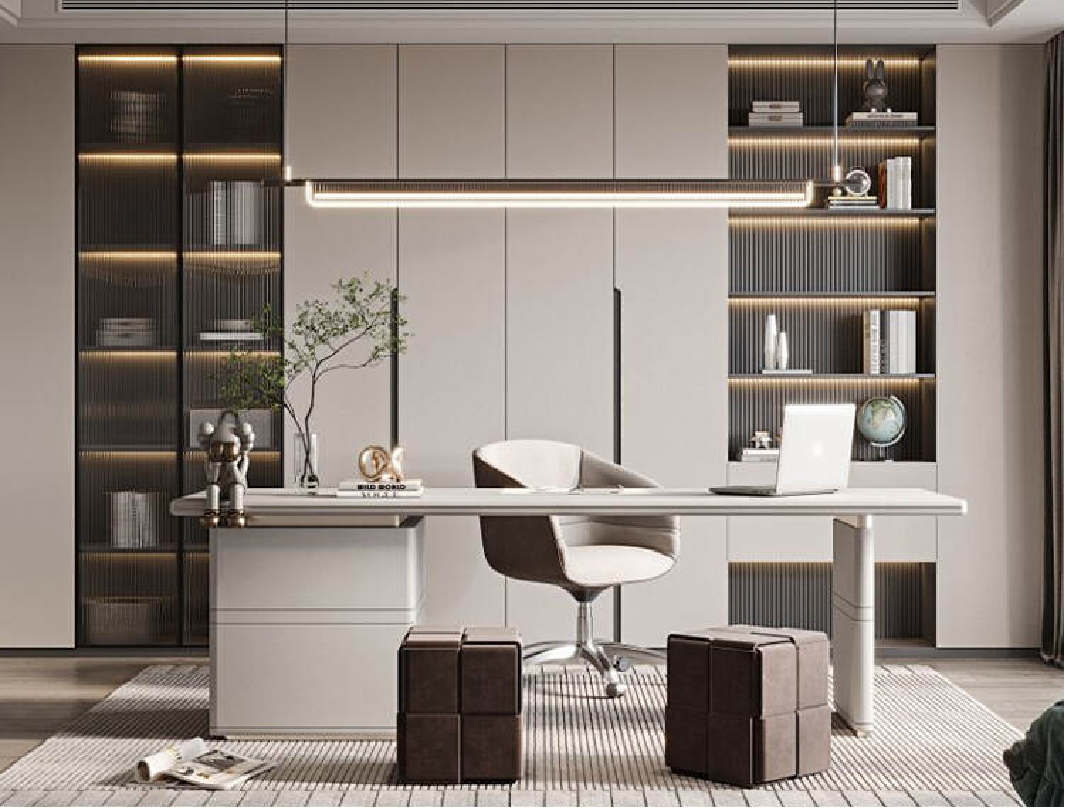Email format error
Email cannot be empty
Email already exists
6-20 characters(letters plus numbers only)
The password is inconsistent
Email format error
Email cannot be empty
Email does not exist
6-20 characters(letters plus numbers only)
The password is inconsistent

News

Sliding Cabinet Doors vs. Hinged Cabinet Doors: Furniture Design Choices
When it comes to choosing the right cabinet doors for your home or office, one of the most common dilemmas faced by consumers and designers alike is deciding between sliding cabinet doors and hinged cabinet doors. Each type offers distinct advantages, and the best choice often depends on factors such as space, style, functionality, and budget. This article will delve into the design features of both types of doors, their pros and cons in different scenarios, and offer practical advice on making the best decision for your furniture design.
Sliding Cabinet Doors: Space-saving and Modern
Advantages of Sliding Cabinet Doors
Space Efficiency
One of the most significant benefits of sliding cabinet doors is their ability to save space. Unlike hinged doors, which require additional space to swing open, sliding doors move horizontally along a track. This design is especially advantageous in small kitchens, tight corners, or narrow hallways, where space is at a premium. Sliding doors can help maximize usable space and improve the flow of movement in smaller rooms.
Modern Aesthetic
In terms of design, sliding doors are often favored for their sleek, modern look. Their minimalist aesthetic makes them a perfect match for contemporary furniture design trends, including industrial, Scandinavian, and modern minimalist styles. With a wide range of materials such as wood, glass, or even mirrored finishes, sliding doors can seamlessly integrate into any modern home or office space.
Installation and Maintenance
While the installation of sliding cabinet doors can be more complex than hinged doors due to the tracks and mechanisms required, once in place, they are generally easier to maintain. There are fewer moving parts to worry about, and the sliding system tends to be more durable over time. Routine cleaning and occasional lubrication of the tracks will keep them operating smoothly.
Drawbacks of Sliding Cabinet Doors
Despite their many benefits, sliding doors can have certain limitations. For instance, they may require precise alignment during installation, and the track system can be prone to dust or debris buildup, which might impair the sliding mechanism. Additionally, while they are excellent for saving space, sliding doors may not offer as wide an opening as hinged doors, which could limit access to the interior of the cabinet.
Hinged Cabinet Doors: Traditional and Customizable
Advantages of Hinged Cabinet Doors
Classic and Timeless Design
Hinged cabinet doors are the traditional choice in cabinetry. Their classic design makes them a popular option in both modern and traditional kitchens. Whether you prefer a rustic, country-style kitchen or a more formal look, hinged doors can complement a wide range of furniture designs. They are particularly well-suited for homes that embrace a more conventional or traditional style.
Customization Options
When it comes to customization, hinged doors offer more flexibility than their sliding counterparts. With hinged doors, you can easily tailor the color, material, and finish to match the overall aesthetic of your kitchen or living space. Whether you want ornate wood carvings, sleek glass panels, or eco-friendly materials, hinged doors can be fully customized to meet your design needs.
Functionality and Accessibility
Another key advantage of hinged cabinet doors is their ease of access. When you open a hinged door, it swings out fully, allowing you to access the interior of the cabinet without obstruction. This is especially useful when you need to store larger items or access the contents frequently. Hinged doors are also great for cabinets that house appliances or other larger equipment, as the full opening provides easy access.
Drawbacks of Hinged Cabinet Doors
While hinged doors offer several benefits, they also come with some drawbacks. One major disadvantage is that they require more space to swing open, which can be problematic in smaller or more cramped kitchens. Additionally, the hinges themselves may wear out over time, leading to sagging doors or difficulty in opening and closing. If not properly maintained, the mechanism may need replacing, which could lead to extra costs.
Which Cabinet Door is Right for You?
Small Kitchens and Tight Spaces
In spaces where every inch counts, sliding cabinet doors are often the better choice. Their ability to slide open without taking up additional space makes them ideal for smaller kitchens or apartments where space-saving is a top priority.
Large Kitchens and Open Designs
For larger kitchens or open-plan living areas, hinged cabinet doors may be more suitable. These doors offer flexibility in terms of opening and closing, allowing for a wider range of motion and easier access to items. Furthermore, in larger spaces, the requirement for extra space to open the door becomes less of an issue.
High-Traffic or Family Kitchens
If your kitchen is used frequently by multiple people, the choice of cabinet doors can greatly affect daily functionality. Hinged doors provide easier access and can be a practical option for high-traffic kitchens, as they allow users to open the doors fully and access the items inside more easily. Sliding doors, while modern and stylish, might not offer the same ease of use, especially for people who need to access items quickly and frequently.
Constructive Advice: Choosing the Right Door
When choosing between sliding and hinged doors, consider factors such as space constraints, design preferences, and functional requirements. Here are some tips to guide your decision:
- Space Considerations: If you're working with limited space, sliding doors can help save valuable floor area.
- Design Style: Choose hinged doors for a more traditional or customizable look, and opt for sliding doors if you prefer a sleek, modern aesthetic.
- Budget: Sliding doors might have higher upfront installation costs due to the track system, while hinged doors are generally more budget-friendly, especially if you choose standard options.
Examples
- 1: A small, city apartment kitchen benefited from sliding cabinet doors, as the narrow space made traditional hinged doors impractical.
- 2: A family home with a spacious kitchen found that hinged cabinet doors offered superior functionality, allowing easy access for frequent use.
Conclusion:
Both sliding cabinet doors and hinged cabinet doors offer unique advantages, and the right choice depends largely on your individual needs. Sliding doors excel in space-saving and modern design, while hinged doors stand out for their classic appeal, ease of access, and customizability. Whether you're renovating your kitchen or designing a new space, the key is to select a door style that matches your functional needs, design preferences, and budget.
